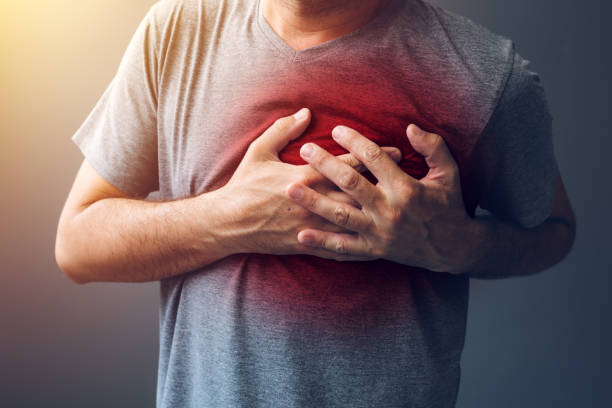03 Feb 2026
Rhinoplasty Revision Surgery in Mohali: Cost When Your First Nose Job Fails


Dr. Harinder K Bali
22 May 2025
Call +91 80788 80788 to request an appointment.
Myocardial Infarction (MI), commonly known as a heart attack, is a medical emergency that occurs when blood flow to a part of the heart is blocked, causing damage to the heart muscle. This blockage is frequently due to a clot that forms in the coronary arteries, which supply blood to the heart. Understanding MI is crucial in recognizing its signs and symptoms, as early intervention can dramatically improve outcomes.
There are various factors that can contribute to the occurrence of myocardial infarction. These include lifestyle choices such as poor diet, lack of exercise, and smoking, as well as pre-existing medical conditions like diabetes, high blood pressure, and high cholesterol levels. Knowledge of these risk factors enables individuals to take proactive measures to mitigate their risk.
The root causes of myocardial infarction are usually linked to coronary artery disease, where the arteries become narrowed due to fatty deposits, known as plaques, which consist of cholesterol and other substances. When a plaque ruptures, it can form a blood clot, leading to the obstruction of blood flow. Understanding these causes can help in the prevention of MI.
Recognizing the symptoms of a heart attack can be a lifesaver. Symptoms can vary considerably between individuals but typically include chest discomfort, which may feel like pressure, squeezing, fullness, or pain. Other symptoms may include:
If you or someone you know is experiencing these symptoms, especially if they last more than a few minutes or go away and return, it is critical to seek emergency medical assistance immediately.
Prompt and accurate diagnosis of myocardial infarction is vital for effective treatment. Diagnostic procedures may include:
At Livasa Hospitals, our cardiac specialists employ advanced techniques for swift and thorough diagnosis, ensuring timely intervention that can save lives.
Treatment for myocardial infarction focuses on restoring blood flow to the heart. Immediate management may involve:
The choice of treatment varies based on individual health factors, severity of the blockage, and overall patient condition. The skilled team at Livasa Hospitals in Punjab specializes in myocardial infarction management, ensuring personalized care tailored to each patient's needs.
Recovery and ongoing management after a heart attack are crucial for preventing subsequent events. Post-heart attack care strategies may involve:
At Livasa Hospitals, our cardiac rehabilitation programs in Punjab are designed to support patients through their recovery journey, enabling them to regain their health and return to their daily activities.
Cardiac rehabilitation is a structured program that combines education, counseling, and exercise. It plays a pivotal role in heart attack recovery and long-term management. Key components include:
The programs offered at our various centers, including Livasa Mohali and Livasa Amritsar, focus on comprehensive care, ensuring that patients receive the necessary support to prevent further heart complications.
Recovery from a myocardial infarction can be challenging but is manageable with the right strategies. Here are some essential tips:
These heart attack recovery tips can greatly improve your quality of life and overall wellbeing post-MI. Every change you implement contributes to a healthier heart.
Myocardial infarction is a serious condition requiring immediate attention and careful management. With the right treatment and lifestyle modifications, individuals can recover successfully and regain control of their health. Livasa Hospitals is committed to providing comprehensive care, from initial diagnosis to ongoing support through cardiac rehabilitation and post-heart attack care. If you or a loved one is experiencing heart-related issues, do not hesitate to reach out to our experts.
To foster awareness and promote heart health, we urge individuals in Punjab to stay informed about the risks and symptoms of heart disease. Together, we can combat cardiovascular diseases and enhance heart health in our communities.
Early intervention is key. Book an appointment at Livasa Hospitals, or call us for expert assistance in managing heart health.
Rhinoplasty Revision Surgery in Mohali: Cost When Your First Nose Job Fails
Plastic Surgery After Massive Weight Loss: Body Contouring Packages in Mohali
ENT + Cosmetic in Mohali: Septoplasty for Breathing with Cosmetic Rhinoplasty Offers
Livasa Healthcare Group Corporate Office,Phase-8, Industrial Area, Sector 73, Sahibzada Ajit Singh Nagar, Punjab 160071
| Mohali | +91-99888 23456 |
| Amritsar | +91-99887 49494 |
| Hoshiarpur | +91-99883 35353 |
| Nawanshahr | +91-75081 82337 |
| Khanna | +91-98888 05394 |